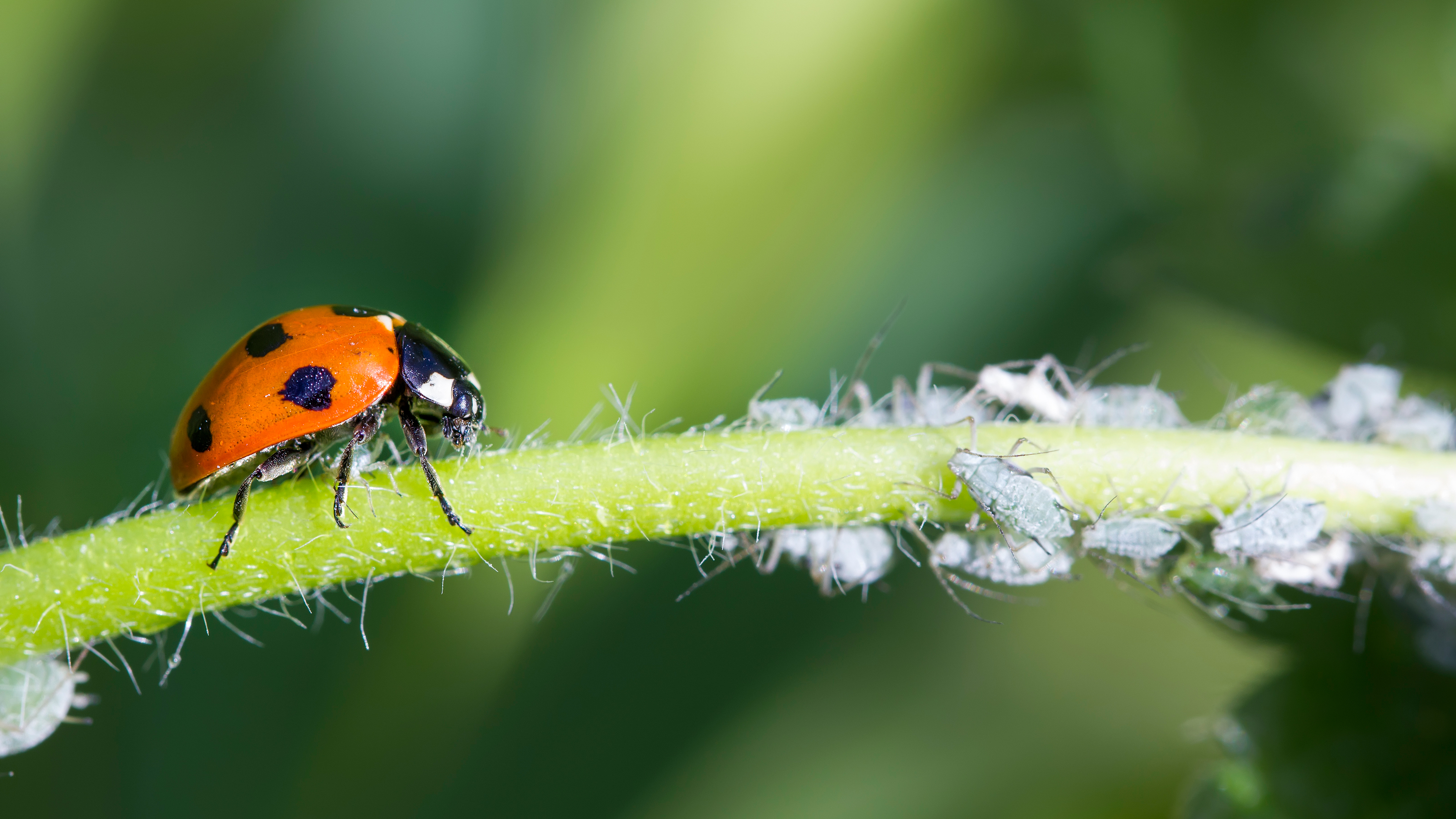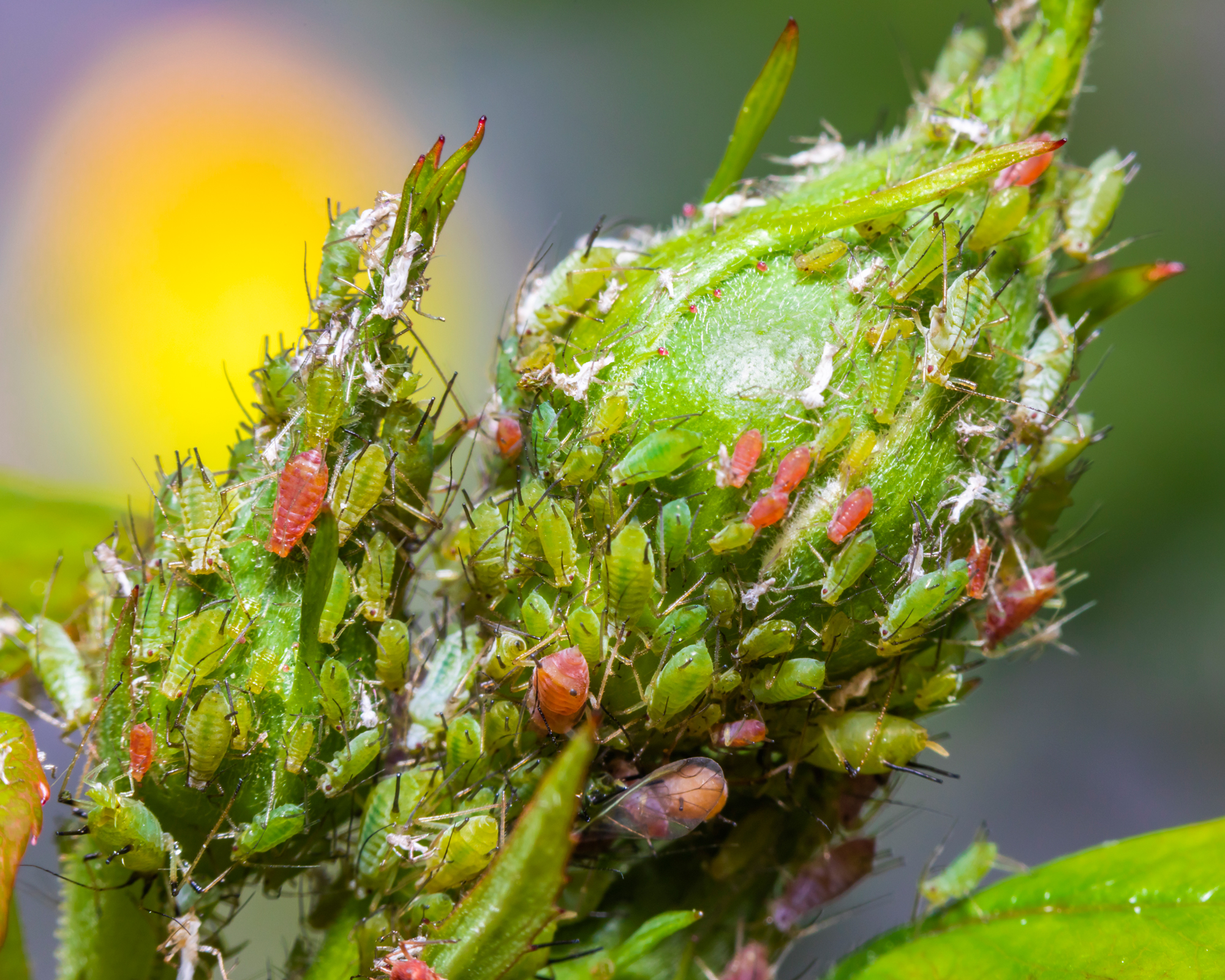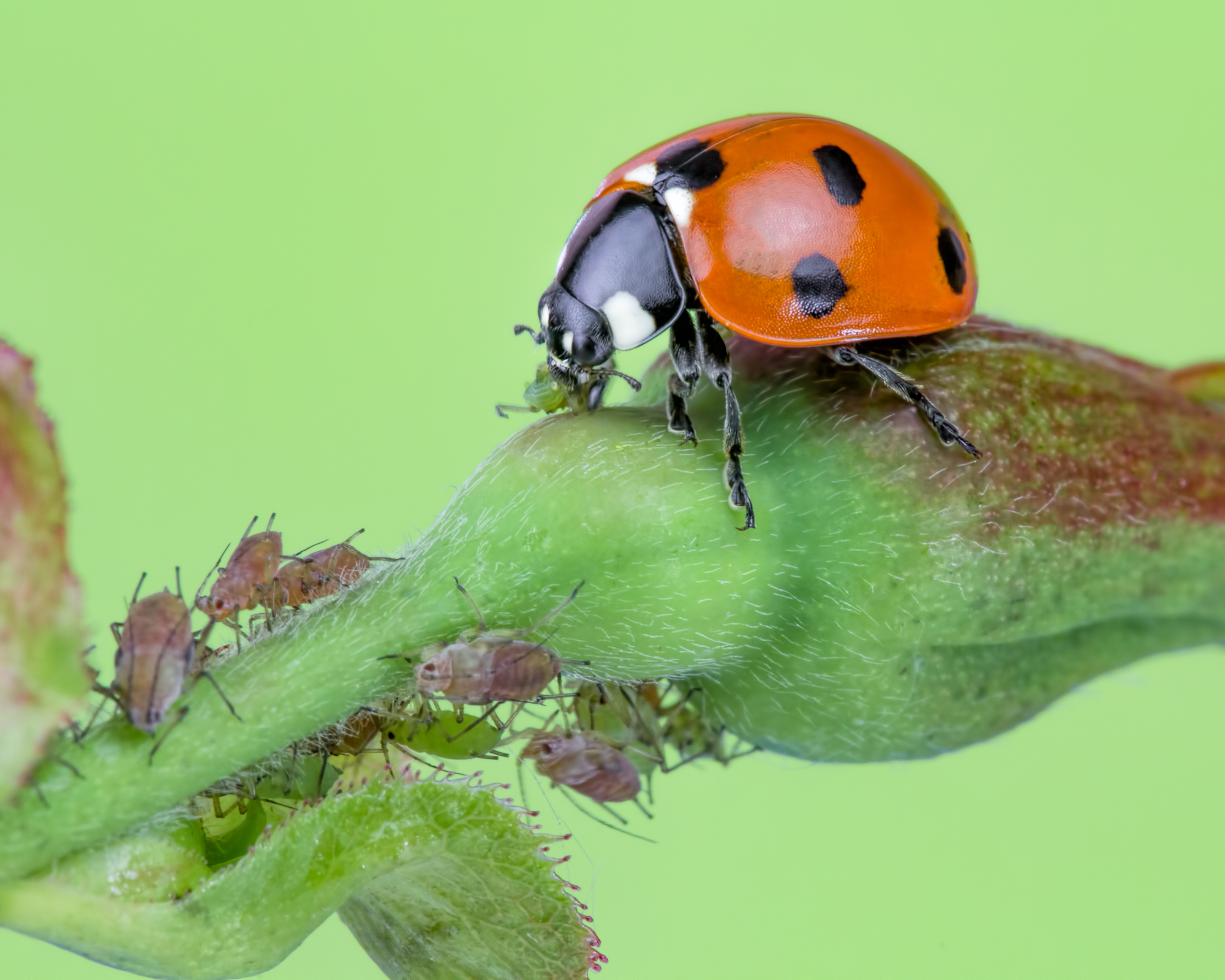Scientists may have found a way to deter garden pests – with 'the smell of fear'
Scientists have found a promising new avenue for combating garden pests, and it's completely pesticide-free

What does fear smell like? Well, it may just smell like ladybugs. Scientists have recently discovered an exciting new way to fight garden pests, and it has to do with insects' keen sense of smell.
The discovery will be of special interest to gardeners who want to explore wildlife garden ideas and eliminate the use of harmful pesticides in the garden.
Scientists discover 'the smell of fear'

The exciting new project has involved scientists developing a way to bottle 'the smell of fear' that is highly effective against common garden pests such as aphids. If you've ever tried to figure out how to get rid of aphids, you'll know that they can be a tricky pest to tackle, reappearing just as you thought you'd dealt with it successfully.
Unless, of course, you have ladybugs in your garden. These beneficial insects eat aphids and, as researchers from Pennsylvania State University have found, they also repel aphids by emitting a smell that terrifies the little insects.
In order to determine the exact smell compounds that trigger this intense fear in aphids, the researchers hooked up live antennae to aphids and then diffused various scent compounds to see how they would react.

The findings were presented by Jessica Kansman, Ph.D, at the annual meeting of the American Chemical Society in August. Jessica explained that 'insects rely on olfactory cues to find food, mates and places to live, so this is a great opportunity to investigate how to use these smells to manipulate their behavior.'
Sara Hermann, Ph.D., the project’s principal investigator, drew a parallel between humans and insects where it comes to smell and perceptions of threat. She said: 'It is not uncommon to use our senses to avoid risky situations. If a building was on fire, we as humans could use our senses of sight or smell to detect the threat. There is evidence for such behavioral responses to risk across taxa that suggest prey organisms can detect predation threats.'
The next steps for the team will be to conduct field tests to see how effective this method is for controlling pest numbers in typical outdoor conditions. If it is found to be effective, the scientists are hoping to bottle up 'the smell of fear' as an oil-based diffuser that can be easily used in gardens and agriculture and reduce the need for harmful pesticides.
Only time will tell if this latest discovery can be used effectively as a natural pest control method, but in the meantime adding a few plants that repel insects to your plot could give you the helping hand you need in fighting pests.
Anna writes about interior design and gardening. Her work has appeared in Homes & Gardens, Livingetc, and many other publications. She is an experienced outdoor and indoor gardener and has a passion for growing roses and Japanese maples in her outside space.
